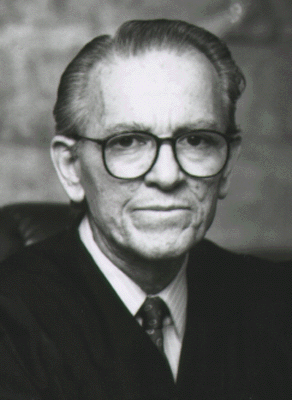Will the Proliferation of Police Video Finally End Miranda?

Wearable video, or ‘body cams’, is certainly the new hot topic in policing these days. For that matter, it’s all over the public and political forums as well.
Many agencies will start using them soon if they have not all ready; ink wet on policies that are sure to go through several changes before the ink dries. It’s new, very new, and there are many considerations that most people in the public are not aware of and police executives are just now exploring.
There are pros and cons, like virtually every change will bring. I personally think that the pros for cops outweigh the cons. I say get them and turn them on.
The public will have different perspectives over time, largely due to the fact they will pay for it (data storage alone will put dents in local budgets and other services will fall second and third to police video), and worse (I believe) will be the exploitation of the video in the media.
Those things the police deal with in the privacy of a home and never speak of? Nope. Not anymore. Turn on the news, or Google your name. This started a long time ago and will only get worse. Nothing like a family’s personal crisis being aired on a TV station with a network watermark in the corner. Now that, is entertainment.

One of the pros that could develop however is Miranda warnings becoming obsolete.
Crazy talk? Not hardly. Given the introduction of video capabilities years ago for interviews and interrogations, it could have been gone long ago.
Miranda is about preventing coercion during an interview. The old fashioned hot white light and rubber hose methods of interrogation.
Over the years, it’s history, intent and purpose has been twisted and torn from it’s rather simple premise. Even today, a Google search is just as likely to find Miranda and the use of Miranda described incorrectly.

This is not a new idea. Judge Harold J. Rothwax, in his book Guilty: The Collapse of Criminal Justice, suggested the same, citing that since interviews and interrogations can be recorded on video, there is no need to question the way the session took place. That was published in 1996. Video technology has developed in leaps and bounds since that time.
If you have never read his book you should, as in order it today and take a look at it. His take on the justice system when the book was published is just as relevant today.
The truth is incontrovertible. Malice may attack it, ignorance may deride it, but in the end, there it is.
Winston Churchill
So…if we know really good video equipment is available (and commonly in use) for the interview room and we know we are about to see a prolific explosion in the availability of every police interaction with the public, why are we clinging to something we just don’t need anymore?

Eventually perhaps you’re right, but considering the publics distrust of police of late (reason for cameras?), and general concern with government overreach, the public will probably be slow to change course. As you allude to, many departments cannot afford the expense of body cameras and will probably resort to in-house interrogation videos when persons of interest become suspects. Policing is and will become more complex as time and technology improves and replaces human intervention and sometimes common sense.
Alan Davis hit it right on the head. There is so much distrust going around that anything to do with taking away a chance to beat a charge on a technicality is not going to be removed from the justice system. Confidentially is gone, there will be more complaints and more lawsuits, where is the money coming to pay for them? Yeah, we are in decay and we seem to be in the act of free falling without a parachute!
Terrill Caplan, PPO, PI
I must have missed something when reading (and rereading) the article. If I didn’t, I must totally disagree with the entire premise.
Specifically, the position “Miranda is about preventing coercion during an interview. The old fashioned hot white light and rubber hose methods of interrogation.” completely misses the point. That is NOT what it is about. By definition, Miranda was established to inform the suspect of their rights at the time of contact or arrest. Any interrogation or interviews would be AFTER the fact. And if the suspect is not Mirandized (read their rights), what happens in court to the content of any videos taken after arrest? It would be excluded, thereby endangering the case. Under this circumstance, the only remaining video of value would be any taken prior to or at the time of arrest.
Body cams will turn out to be of benefit to LE just as dash cam and interrogation video is now, however video can and will never replace Miranda.
Am I wrong here?
David Lyons, MBA
I agree with you on the present understanding of Miranda, but if you look closely at the case, the concern were over the way the confession was obtained. The requirement that a defendant receive the warning was based on that if an attorney was present, coercion was less likely to occur; not so much of a lesson in civics as it is viewed today. Even as we speak it remains misunderstood in the industry; often applied when it is not required (likely more than the error of not applying it) because it manifested itself into some sort of absolute right.
I (like Judge Rothwax) am not suggesting LE stop using it on a dime; this should be a system accepted change. If you get a chance get his book and read it; his argument is respectable and articulate.
Bruce Pitt-Payne
I can’t speak for the U.S. but up in Canada we have been video recording suspect interviews and audio recording all non-interview contact for years (as a best practice). We still have to have a voir dire in most cases in order to prove that the statement was voluntary and free of Charter violations. Whereas the video recording is great for showing what happened, it still does not reveal why it happened. For example, an interviewer might tell a suspect that the truth would set him free. The video would render the words as an absolute but it would not explain the meaning as it was understood by both the interviewer and the suspect. I’m going to guess that the use of video in the U.S. will not preclude a defence, it will just lead to a different defence. I hope I haven’t ruined anyone’s day. Cheers
John Van Groningen
How will photos of people who have their entire faces/body covered be useful to police?
Joshua Ball, MPA
Excellent thoughts David Lyons, MBA
Garry Dobson APM
Aren’t the two issues completely separate? One is visual proof of either an act or interview post-act the other is providing advice to a suspect that they still have certain rights and in case they are not aware of them here they are…
Regards
Erik Voss
Suspect: Hey, aren’t you going to read me my rights?
Officer: Do you know what they are?
Suspect: Well, … yeah.
Officer: There you go.
Because of TV and the movies, Miranda warnings have become the equivalent of getting a free appetizer if your server doesn’t mention the special.
Erik Voss
Miranda applies only when asking questions to a person who is either in physical custody or reasonably believes they’re in custody. Where the body camera really comes in handy is when initially questioning someone at the scene to figure out what’s going on which is something the courts have repeatedly said is okay.
All too often, officers rush to read Miranda before it’s necessary which is the procedure on every cop show ever made (followed by the obligatory whoop-whoop of the siren as they drive away. Don’t get me started.) There will always be a need for Miranda but my take on it is that it’s become such a part of the cultural fabric, everybody knows you don’t have to answer the questions if you don’t want to. That being said, video or not, Miranda will always be needed for the morons.
Terrill Caplan, PPO, PI
Agreed, it will always be needed. And with our current society, we can never assume anyone knows ANYTHING let alone their rights under Miranda.
BTW, I’m proud of the fact that I never watch cop shows and really never have. We watch the occasional “World’s dumbest criminals” just for comic relief.
Doug “Red” Parker
I agree, Miranda is not going away and using body cams won’t change this. Most Miranda arguments today are about custody and body cams will help establish whether or not custody existed…not whether or not the officer read a suspect their rights. It is a legal hoop and a tool good interviewers use to their advantage.
Roger David Hardesty
What public good does the warning serve? If awareness of constitutional protections has value in a free society, and school curriculum has long ago retreated from making general knowledge of the Bill of Rights, then reasoning for Miranda warnings may remain. Since Ferguson, we’ve been called on repeatedly to offer ‘Know Your Rights’ training … an indicator that public interest will continue after these surveillance devices gain broad acceptance.
In our recent post, ‘Police Body Cameras & State Secrets,’ we analyze state legislation as Oregon offers police blanket exemption from public disclosure of their work product.